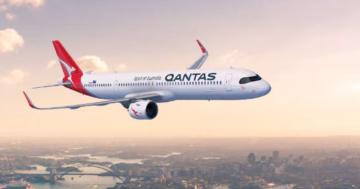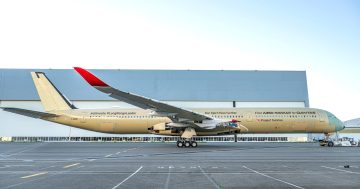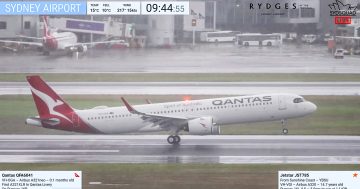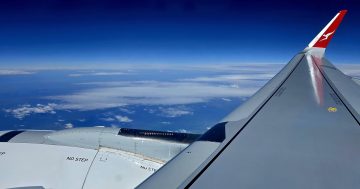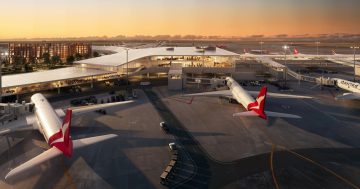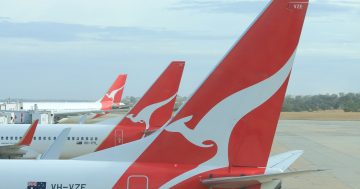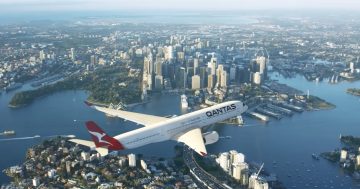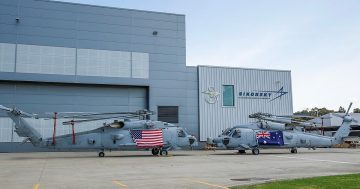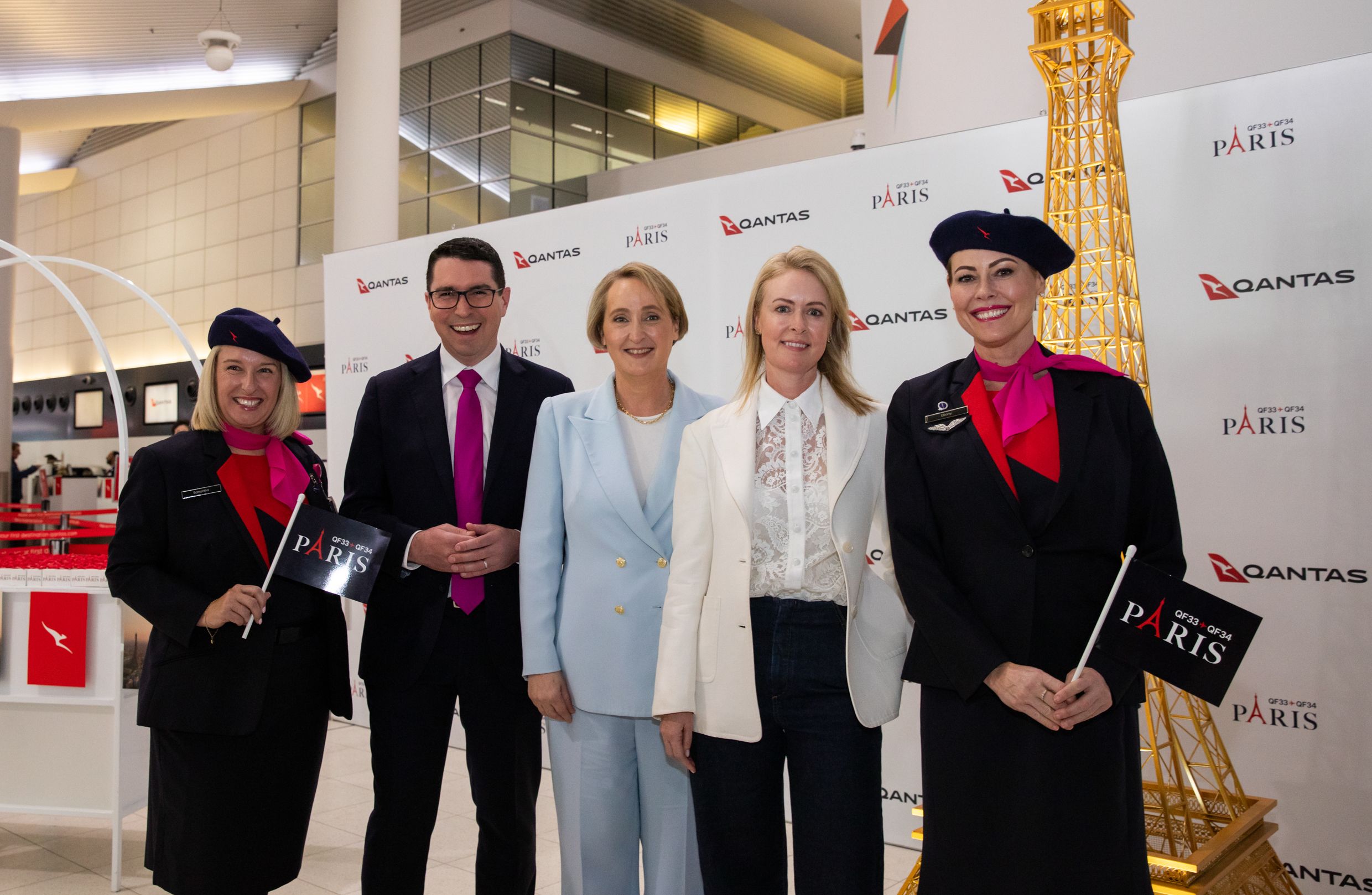
Qantas CEO Vanessa Hudson (centre) says the airline remains focused on further improving its performance and continuing to deliver for customers, staff, and shareholders. Photo: Qantas.
For the third consecutive year, Qantas has announced a strong financial year result. It has pledged to invest its profits in staff bonuses, shareholder dividends, frequent flyer scheme incentives, and the purchase of new aircraft.
The result saw the airline record an underlying profit before tax of $2.39 billion in 2024/25, a 15 per cent improvement on the previous year, and close to the record $2.47 billion it logged in 2022/23.
This result continues a remarkable turnaround from just five years ago, when the airline laid off thousands of staff and required a multi-billion-dollar bailout. It also received $900 million in JobKeeper payments from the Federal Government during the COVID-19 pandemic.
It also bookends a year in which the airline was fined $100 million for dishonestly selling airfares on flights it had already decided to cancel, was also fined $90 million and forced to pay compensation of more than $120 million to baggage handlers it illegally sacked and replaced with contract staff in 2021, accusations that the airline is ripping off customers on routes to and from Canberra, and suffered a cyber-hacking incident in June.
Speaking to financial analysts at the results announcement, Qantas CEO Vanessa Hudson said the year had been all about delivery for everyone across the Qantas Group.
“While we are pleased with the progress we are making, we remain focused on further improving our performance and continuing to deliver for our customers, people and shareholders,” she said.
“Continuing strong demand across all market segments, combined with our dual brand strategy, helped the group grow earnings. Qantas and Jetstar carried four million more customers during the year, while our Loyalty business grew as frequent flyers engaged with the program more than ever before.
“Our strong financial performance is enabling significant investment in new aircraft and customer initiatives, helping deliver better operational performance and customer satisfaction across both airlines.”
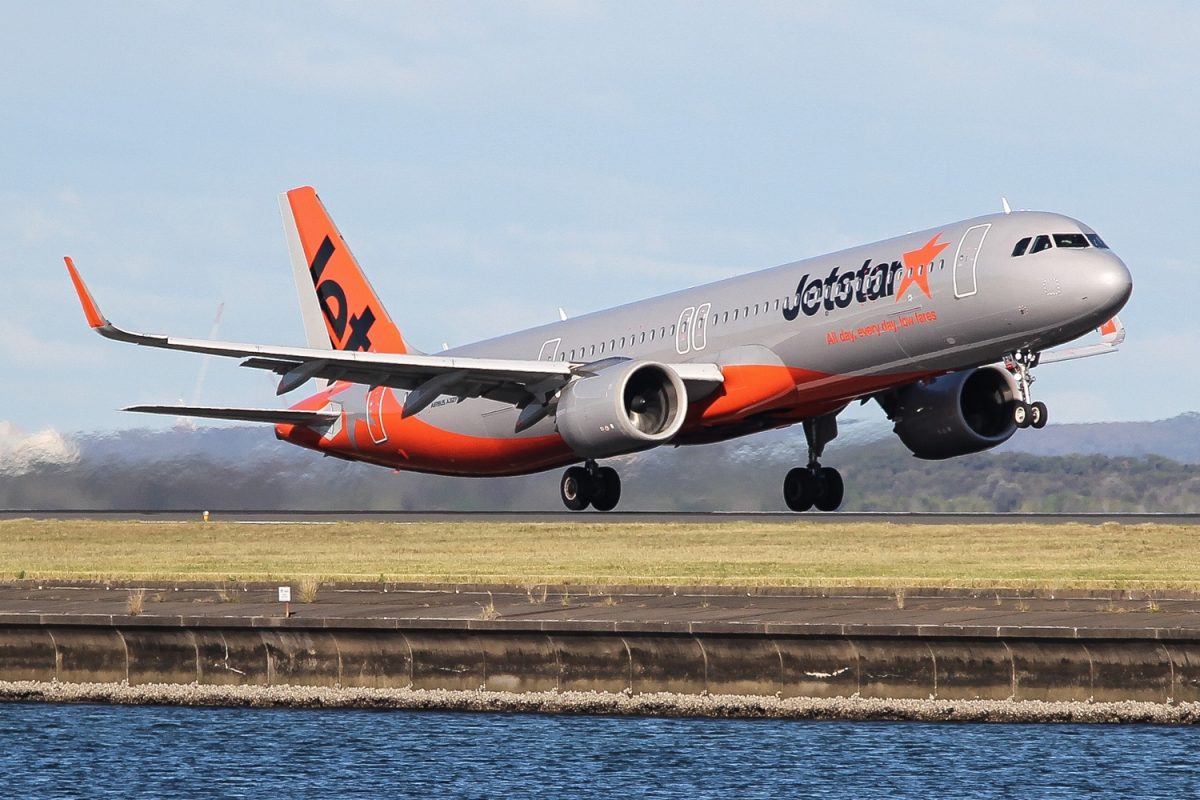
A Jetstar Airbus A321neo taking off from Sydney. Photo: Andrew McLaughlin.
Low-cost subsidiary Jetstar had what Ms Hudson described as a “standout year” as its fleet renewal, led by new and more efficient Airbus A320/321neo aircraft, provided a significant boost in passenger satisfaction and on-time performance.
“In a high cost-of-living environment, Jetstar continued to provide value for customers, with around one in three travelling for under $100,” she said.
She also recognised the efforts of the airline’s employees, and said each one would receive $1000 in company shares.
“I want to thank our people who serve our customers with passion every day,” she said.
“They are the real stars of our performance, and we are introducing a new employee share plan so they can share in our success.
“As well as rewarding our employees, we have also resumed paying dividends. We have announced we will pay a base final dividend of $250 million and a special dividend of $150 million, taking dividends for the full year to $800 million.”
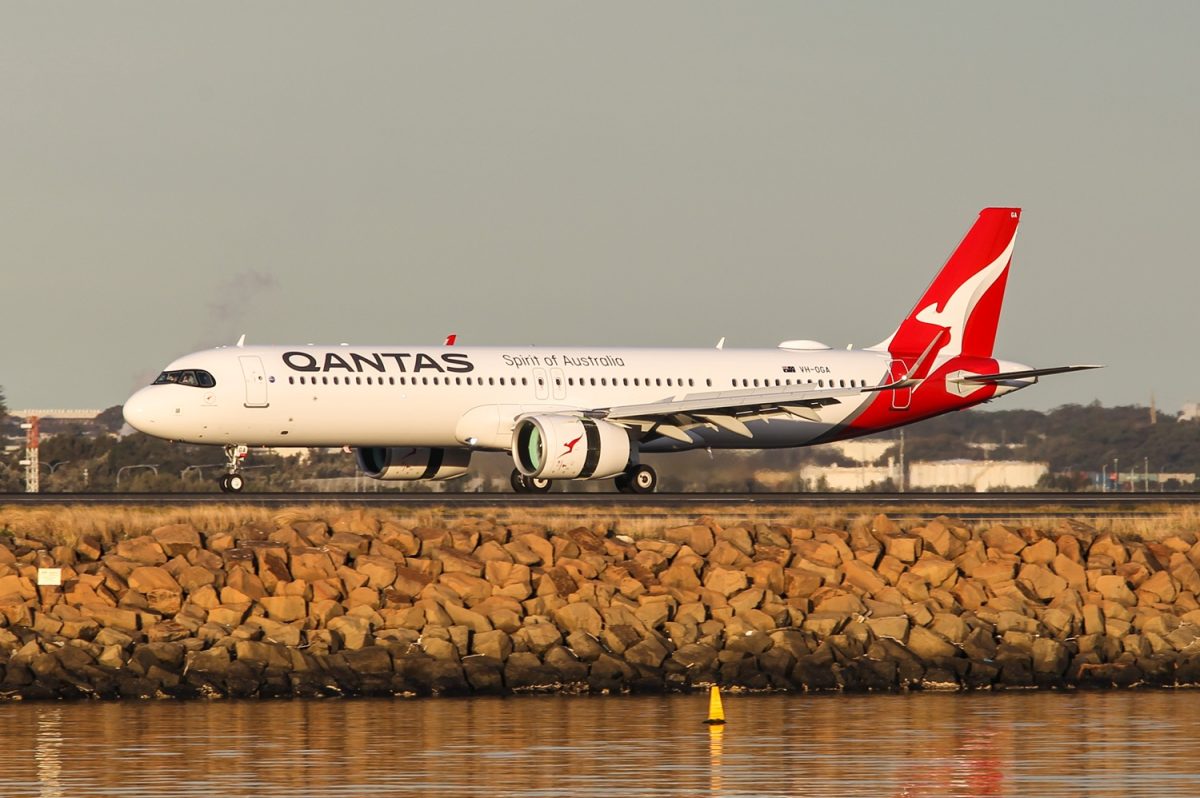
Qantas’s first Airbus A321XLR at Sydney Airport. Photo: Andrew McLaughlin.
Ms Hudson used the results conference to announce that the airline will order an additional 20 A321XLR airliners to supplement the 28 it already has on order, replacing the airline’s aging Boeing 737-800s.
The first two A321XLRs are already in the country and have been busy conducting training and route-proving flights out of Sydney and Brisbane. They are expected to enter service from mid-September, making Qantas the first airline in the Asia-Pacific to operate the aircraft.
“Investing in new aircraft is one of the most significant ways that we can provide our customers with a better flying experience, and these billion-dollar investments are possible because of our continued strong financial performance,” Ms Hudson said.
“These additional A321XLRs will accelerate the retirement of our 737 fleet and open up new opportunities for domestic and international travel, allowing us to reach destinations that aren’t possible with our current narrowbody fleet.
The 20 additional aircraft will be equipped with lie-flat business class seats and primarily be employed on transcontinental flights and services to Asian and Pacific destinations.
She also confirmed that, following the closure of the Jetstar Asia offshoot in July, that the airline’s 13 A320s will be redeployed across Jetstar Australia, Jetstar New Zealand and QantasLink from September to support fleet renewal, replace leased aircraft and support growth.
Jetstar will also refurbish the cabins of its Boeing 787-8 fleet, which are employed on low-cost international services to destinations in Asia and Hawaii, with the first of these scheduled to rejoin the fleet this financial year. Jetstar’s first A321XLRs are scheduled to enter service in early 2027 and will operate on medium to long-haul routes that don’t require the larger 787.
For long-haul services, Ms Hudson said the airline remains on track to introduce the Airbus A350-1000ULR into service in early 2027 for its ambitious Project Sunrise services, which will see non-stop 21-plus hour services between Sydney and New York, and Sydney and London.
For Frequent Flyers, the airline reports that it has increased the availability of reward seats on Qantas, Jetstar, and partner airlines this year, resulting in 10 per cent more Qantas points earned and 8 per cent more redeemed compared to last year. Members were also offered bonus status points this week as a reward for their loyalty, and more Double Status Credits and Qantas Points offers.


